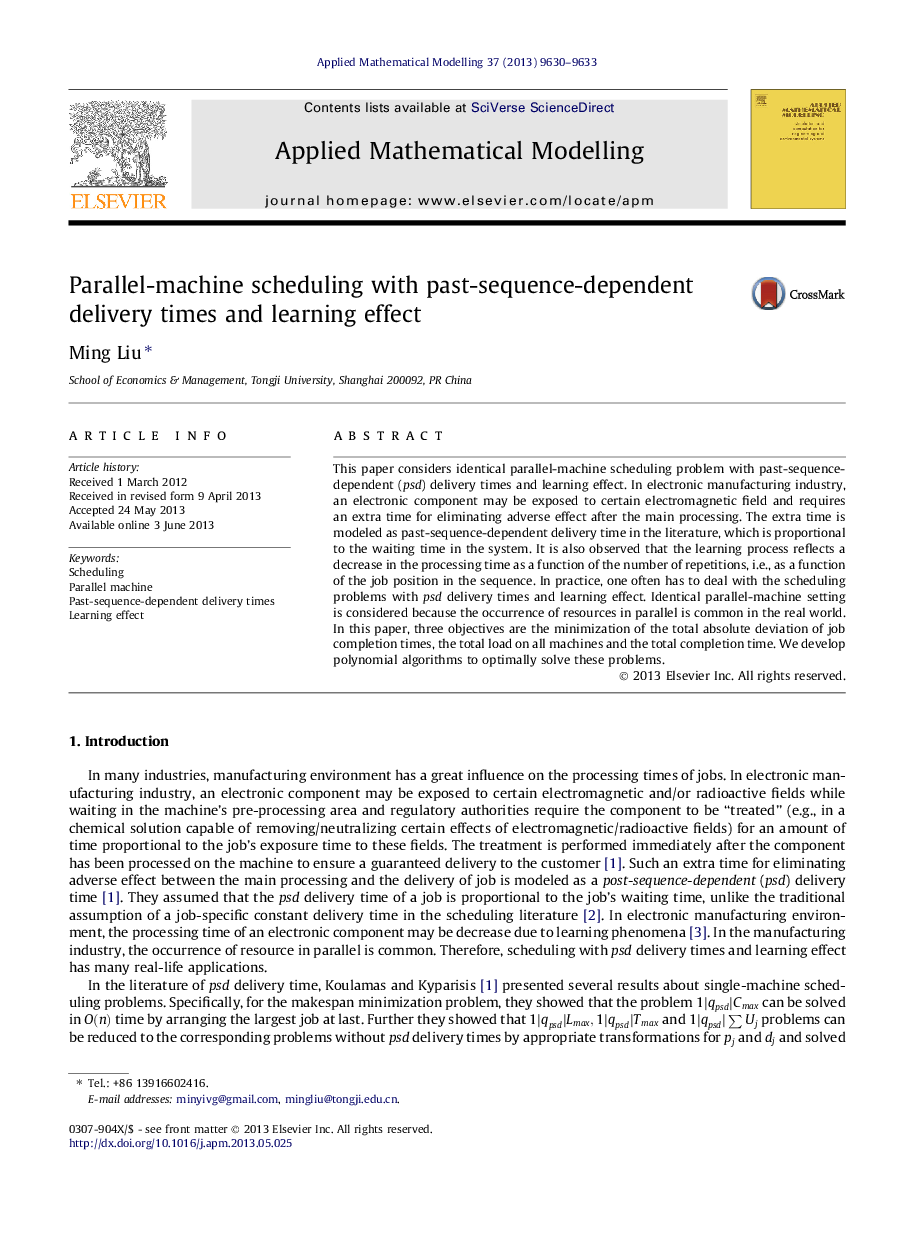| Article ID | Journal | Published Year | Pages | File Type |
|---|---|---|---|---|
| 1704294 | Applied Mathematical Modelling | 2013 | 4 Pages |
This paper considers identical parallel-machine scheduling problem with past-sequence-dependent (psd) delivery times and learning effect. In electronic manufacturing industry, an electronic component may be exposed to certain electromagnetic field and requires an extra time for eliminating adverse effect after the main processing. The extra time is modeled as past-sequence-dependent delivery time in the literature, which is proportional to the waiting time in the system. It is also observed that the learning process reflects a decrease in the processing time as a function of the number of repetitions, i.e., as a function of the job position in the sequence. In practice, one often has to deal with the scheduling problems with psd delivery times and learning effect. Identical parallel-machine setting is considered because the occurrence of resources in parallel is common in the real world. In this paper, three objectives are the minimization of the total absolute deviation of job completion times, the total load on all machines and the total completion time. We develop polynomial algorithms to optimally solve these problems.
